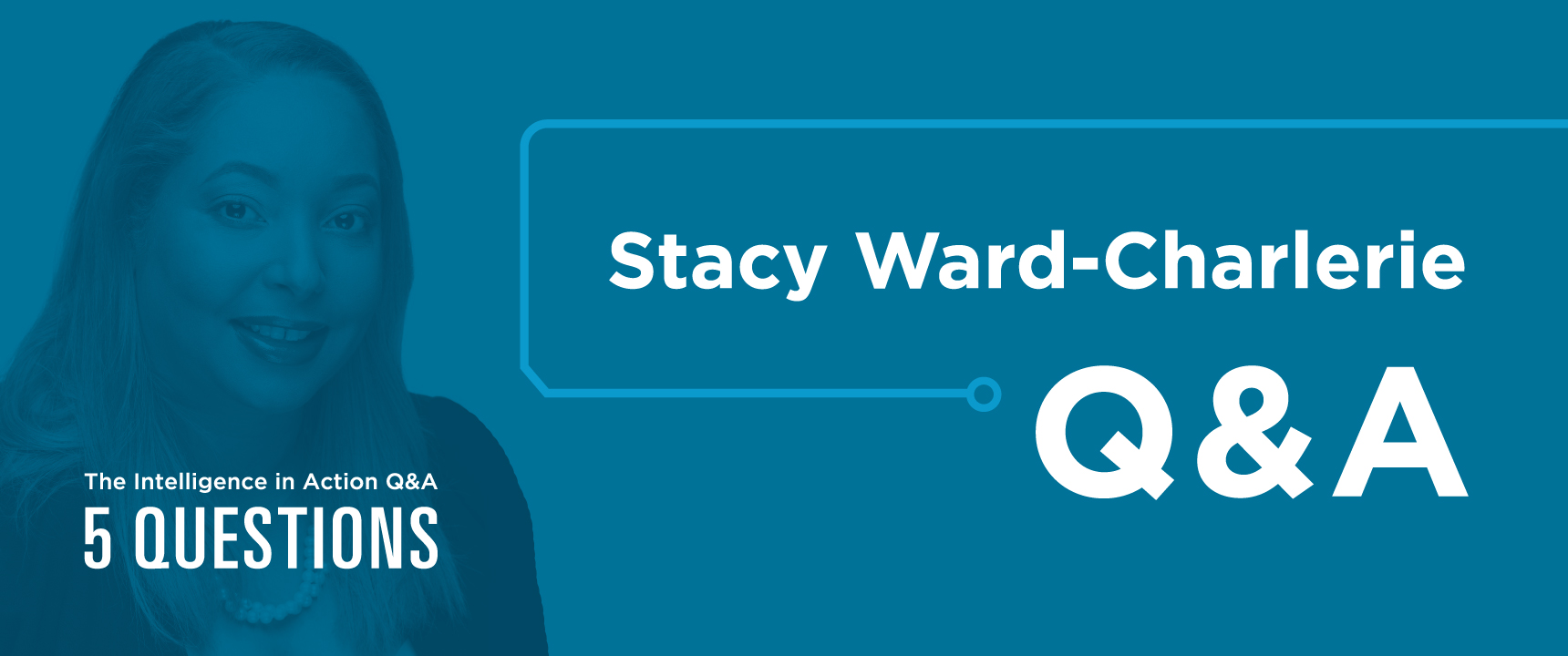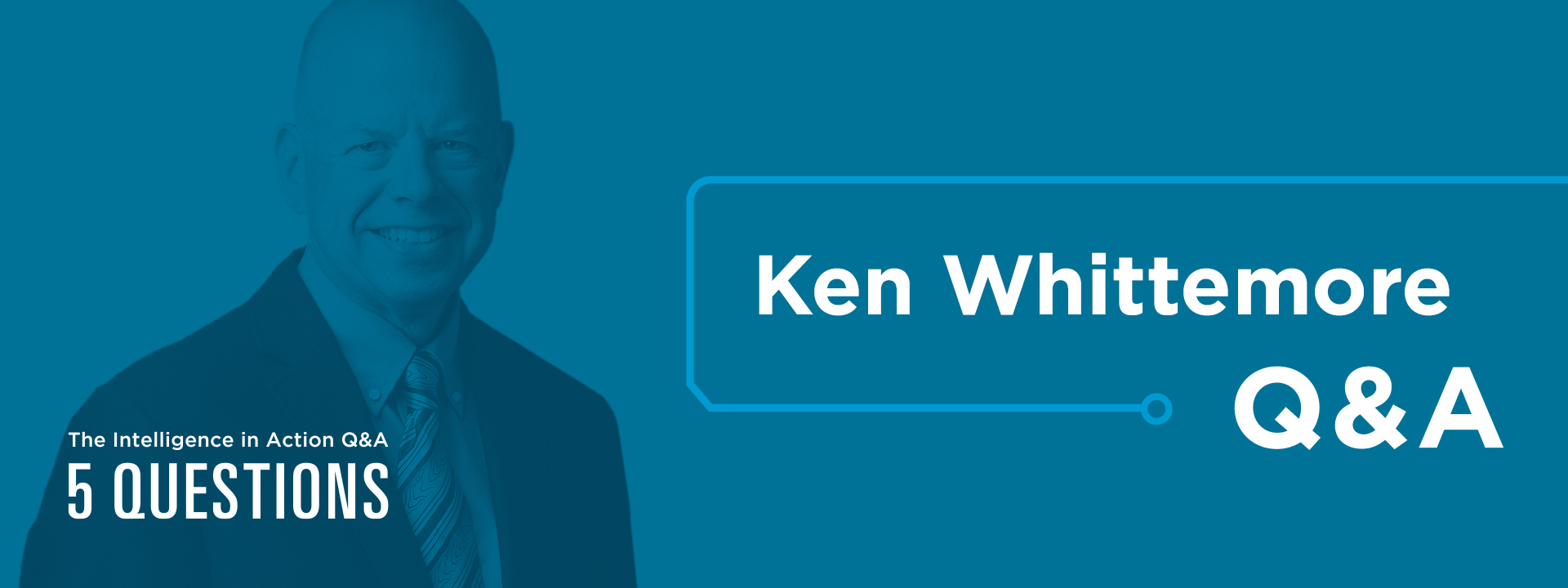As a product innovation manager, Stacy Ward-Charlerie brings her clinical background to bear on practicable solutions that help clinicians in the field. “I’ve known since childhood I wanted to help people. That’s why I became a pharmacist. Working to develop our technology solutions allows me to make clinicians’ lives better so that they can make patients’ lives better. What a great opportunity!”
1. It’s 2029. What are you most proud of having helped accomplish in healthcare?
I’d love to see that every stakeholder involved in a patient’s health and wellbeing knows what medications a patient is taking and why: The doctor. The caregiver. The patient herself. But I would be most proud if opioid overdoses—deaths and admissions—decrease to the extent that it’s no longer an epidemic. Reining in the crisis will require a lot from many different stakeholders, but the work we do at Surescripts plays a role. I am humbled that I get to be part of that.
2. Imagine you’re at a cocktail party and someone brings up the opioid crisis. How would you talk about the role that technology can play in curbing this epidemic?
Steve Jobs once said, “Technology is nothing. What's important is that you have a faith in people, that they're basically good and smart, and if you give them tools, they'll do wonderful things with them.” I agree with him. Technology is not going to solve the opioid crisis. Rather, technology gives time back to the clinician, who can then focus on diagnosis, not on time-consuming manual tasks.
Let’s say a clinician worries that a patient may be falling into addiction. Our Medication History service allows her to see, within seconds, a patient’s entire prescription history and dispensing patterns over the last 12 months. For example, it may show her, based on the refill date pattern, that the patient is taking their opioids on time, but not taking their blood pressure medication with the same rigor. Or maybe the patient paid cash for their opioid prescription but used insurance to pay for other prescriptions. Perhaps there was an opioid prescription that was prescribed by another physician. Those are potential clues. Maybe there’s no issue at all. This technology gives the clinician patient-specific information so that she can prescribe with confidence, or if need be, have a fact-based intervention with her patient.
3. When you sit down with colleagues who are committed to leveraging technology to fight the opioid crisis, what trends or topics are you following?
The real hot topic continues to be opioid risk scores. How can we come up with an algorithm to help providers quickly assess risk for the patient? How do we standardize the data so that the score can be easily communicated from prescriber to pharmacist—with no room for misinterpretation? The score may evaluate how many prescriptions a patient has had over six months, how many doctors they've seen. Is the patient’s morphine milligram equivalents (MME) dose above the Centers for Disease Control recommendations of 50 MMEs or is it below? How many agents are they on? While some risk score tools already exist, I think they need a bit more development. Furthermore, our frontline clinicians need guidance on what to do when they determine the patient is at risk.
4. Not counting colleagues at Surescripts, who do you consider influencers, innovators or leaders?
As a pharmacist, I marvel over medical research and drug discovery. Researchers have made significant advances in gene therapy, now used to treat sickle cell disease, cancer and hemophilia. And as the world of clinical research merges with the fast-paced world of technology (the holy grail!), I look forward to more life-saving medical breakthroughs, as exemplified by the hybrid-closed loop insulin delivery system. The Cleveland Clinic’s 2018 Medical Innovation Summit awarded the system first place among their top ten medical innovations list.
5. Who or what inspires you?
I am moved easily. Stories of triumph or courage inspire me. People who have rebuilt their lives after adversity or those who’ve survived a serious disease or overcome cancer. When I hear such stories, I’m pretty much in tears.
Postscript: What does Stacy do when she has 30 minutes of free time? “I watch HGTV. Hands down, I watch House Hunters. I thought it would've slowed down after I bought my house, but no. I am obsessed with watching other people buy homes.”
To learn more about how Surescripts is arming clinicians to tackle some of the biggest challenges in healthcare, including the opioid crisis, subscribe to Intelligence in Action.


 Dean Riggott Photography
Surescripts
Dean Riggott Photography
Surescripts





